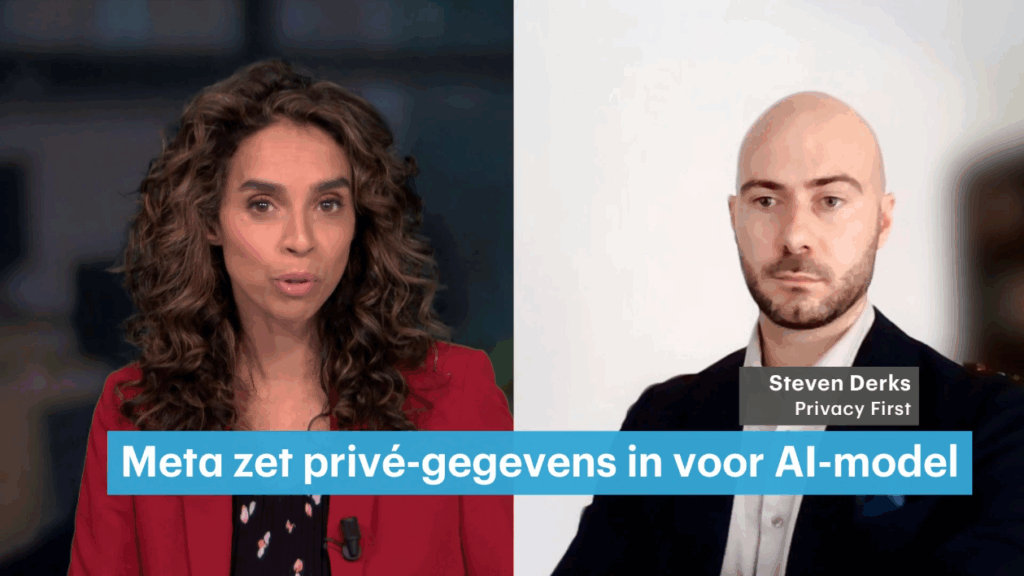From timeline to training dates: Meta's abuse of ignorance
No objection made? Then as of today you are sitting ad infinitum into the caverns of Meta's training data.

Yesterday, Privacy First board member and AI expert Steven Derks was guest at RTL Z to share our views on Meta's latest move: reusing years of user data to create generative artificial intelligence (AI) to train.
Posts, comments, (profile) photos, statuses from years ago - shared in a different zeitgeist, sometimes impulsively, sometimes in confidence - are now being tapped as raw material for commercial AI. Without your permission. Without transparency. Without honest choice.
Meta screens the argument that it is "public information". But nowhere is it explained what exactly that means. Are old, deleted or now-shielded posts still "public"? Data from deactivated accounts? Content in the archive? We don't know. And without such a fundamental delineation, informed consent is impossible. That's not choice, that's abuse of ignorance.
Many people do not even know what is (or was) public in their profiles. For years, Facebook was set up for maximum sharing, not overview or control. And the internet back then was a different world. What you put on your timeline in 2010 could now - without being able to oversee the consequences before - end up in an obscure dataset.
The biggest problem? Once this bucket of data is in the model, it is practically irreversible. Machine unlearning - the active 'unlearning' of specific training data - is still in its infancy. What once entered into the model continues to exert influence. The risks are real: think profile information that harms you when migrating or staying in authoritarian regimes, or sensitive data that literally pops up in generated text.
Meta's approach fits a familiar pattern: first roll out massively with a dubious legal foundation, then wait and see if regulators/judges intervene. And when criticism comes? "The system is already running, it is useful, it has cost a lot, rolling it back is not an option."
We saw this earlier at ChatGPT, where copyright was violated and personal data was unlawfully processed on an unprecedented scale. This is turned a blind eye by governments and regulators. Because yes, it is convenient that you no longer have to write a St Nicholas poem. Even if Meta formally stays within the lines, politics should put a check on this.
Privacy First is certainly not an opponent of AI. But the development of systems should never mean the erosion of fundamental rights. You can also build AI on data that has been shared knowingly, informed and voluntarily. With transparency. With genuine freedom of choice. No tacit consent, no buried institutions, no deadlines nobody knows about.
Yes, it takes more time and money. But this is the standard we should demand from any company that uses our data under the guise of progress.
That is not too much to ask. That is the bare minimum.
This post appeared earlier on LinkedIn.
